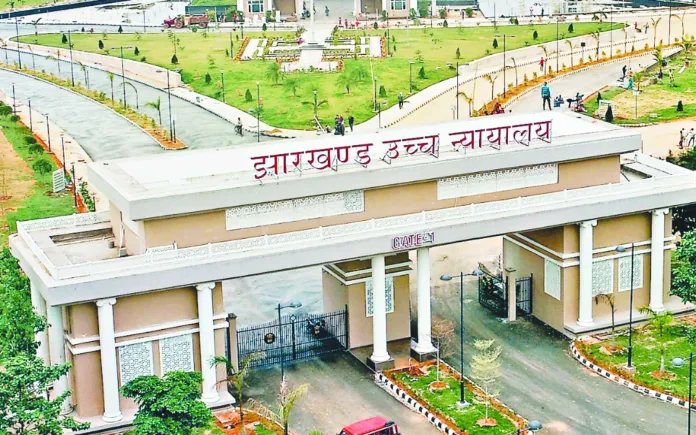The Jharkhand High Court stated that issues about rights, titles, interests, and possession of property cannot be resolved in writ jurisdiction.

The Jharkhand High Court has ruled that issues related to rights, title, interest, and possession of property cannot be resolved through writ jurisdiction. The Court was reviewing a Writ Petition that requested the State Housing Board to refrain from interfering with the lawful possession of a plot. Justice Anubha Rawat Choudhary, in a single-bench decision, noted, “This Court finds that there is a serious dispute regarding the rights, title, interest, and possession of the property in this case. The status of Saroj Kumar, the original allottee, cannot be determined in writ jurisdiction.” The Petitioner was represented by Advocate Dilip Kumar Prasad, while Advocate Surabhi represented the Respondent.
The Petitioner’s lawyer argued that the petitioner is the allottee of a plot. Upon learning that the plot was for sale, she contacted Respondent No. 1 to get the seller’s details and then reached out to Respondent No. 2 to buy the land. The Respondent No. 2 provided a death certificate of his father and a letter from the Executive Engineer recommending the transfer of the plot’s ownership. This information assured the petitioner that his father had passed away and had the rights to manage the property. As a result, the Petitioner agreed to buy the property, paid the sale price, and it was registered in her name.
The petitioner claims that in December, while she was doing construction on her property, the authorities from respondent no. 1 ordered her to stop the work. She received a letter from the Estate Officer of respondent no. 1 instructing her to return the registered deed so the housing board could begin the process of canceling it. The letter mentioned that Respondent No. 2’s father had written stating he was alive. It also referred to Clause 16 of the Registered Deed, which states that any disputes must be settled through arbitration with the managing director of the Housing Board.
According to the Housing Board, the person Respondent No. 2 claimed was deceased was actually alive and was not even his father. The Housing Board’s counsel explained that the letter simply requested the petitioner to return the original registered deed in her possession so they could take necessary actions. The letter outlined the entire situation. The Housing Board indicated that if the petitioner did not surrender the deed, they would pursue cancellation through the Civil Court. The Court decided it could not address issues of rights, title, interest, and possession regarding the property in a Writ Petition, leading to the dismissal of the Petition.
Cause Title: Bimla Devi vs. Jharkhand State Housing Board
Appearances:
Petitioner: Advocate Dilip Kumar Prasad, Advocate Jitesh Kumar, Advocate Umesh Pathak
Respondent: Advocate Surabhi, Amitesh Kumar Geasen, AC to AAG-IA, Advoacte Rajesh Kumar Tiwari, Advocate Shalini Saboo, Advocate Vishwanath Moon








